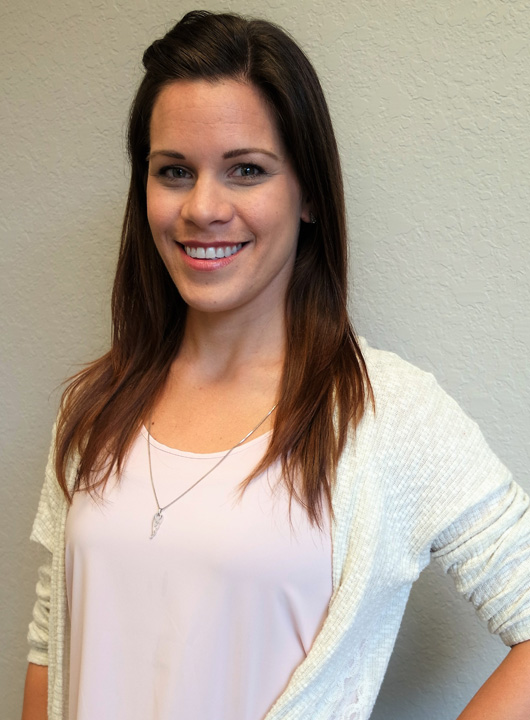Blog

“No-Brush” Tooth-Brushing, Sensory Toys & Other Quick Fixes: Consult a Fort Myers Occupational Therapist First
Recently, a FOCUS Fort Myers occupational therapist was asked about a Facebook advertisement for a “no-brush toothbrush.”
“You know how much (my child) struggles with brushing their teeth. Would this help?”
Another recent inquiry involved an ad for a sensory toy that claimed to be, “perfect for children with sensory processing disorder.”
It’s not that there is anything innately wrong with these products. It’s true that for some kids, they might be really beneficial.
The key word is, “Some.” There is no one-size-fits-all answer, and these parents did the right thing by asking their child’s OT first.
Some Product Ads Fail to Consider the Individual Needs as a FOCUS Fort Myers Occupational Therapist Would
“Not all sensory children will benefit from every product, and in some cases, it could actually cause more harm than good,” said Krystle Lopez, a FOCUS Fort Myers Occupational Therapist with more than 10 years of experience.
“There are important factors necessary to consider. It’s essential to have a full understanding of sensory processing needs, and to do that, you DO need an occupational therapist who specializes in sensory processing disorder.”
Lopez said that while the rise of social media in this information age offers tremendous benefit to parents of children with special needs – and the occupational therapists who treat them – it’s just as important to make sure the product is right for your child.
“My intent is not to discourage any caregiver from purchasing a neat product,” Lopez said. “However, I do feel it necessary to speak out when advertisers attempt to minimize the role of skilled professionals… A skilled occupational therapist is needed to monitor sensory strategies, learning which actually help and which might cause more harm for that particular child.”
Why You Should Think Twice About a “No Brush” Toothbrush
If you’ve been on Facebook the last few months, you have probably seen a few ads for a no-brush electronic mouthpiece toothbrush. There are numerous purveyors of these products, some marketed specifically to children in colorful, animal-themed casings.
Each operate a little differently, but the general concept is largely the same. It involves a mouthpiece, similar to a night guard, equipped inside with a built-in power source and a series of brush heads and bristles that sweep along the tooth and gum surface, somewhat like an electronic toothbrush. The user doesn’t actually have to “brush” in the traditional sense.
There are drawbacks and benefits – all specific to the individual child.
The upshot: Learning to brush one’s teeth is a functional life skill, critical to basic oral hygiene. It’s something that, if at all possible, everyone needs to know how to do. While it may be easier as a parent to have a child just stick something in their mouth to complete the task, the risk is the child will be deprived of learning something they need to know.
Lopez says it’s possible the product could be effective for a broader range of children with a dual approach. If a child is able, he or she would brush with a regular toothbrush for a prescribed period of time that a parent/caregiver tracks with a visual timer. Once complete, that task is “rewarded” by finishing with an automatic toothbrush device.
“This would take a lot of structure and discipline in the home, so it may not be appropriate for all families,” Lopez said. “It would have to be graded over time to provide more time brushing traditionally, less time with the device – until traditional teeth brushing is tolerated.”
She conceded she might recommend a product as a singular option, but that decision should only be made in consult with a professional on a case-by-case basis, in careful consideration of the child’s unique diagnosis and prognosis. For example, if a child’s condition will not allow traditional teeth brushing at all, then compensatory strategies like this might be a good alternative.
Talk to Your Fort Myers Occupational Therapist Before Trying a New Sensory Strategy
“I really need to be clear in saying that I absolutely applaud parents and caregivers for educating themselves and taking initiative, because that collaborative approach is truly a therapist’s dream,” Lopez said.
“… But because some of these strategies can cause more harm than good and so many methods of sensory input stay in the brain for several hours or even cross days and nights, it’s important to ask your occupational therapist first.”
Bottom line: There is no simple, black-and-white method to determine the most efficient set of sensory strategies for a child. That’s why we’re here! Any product advertised to be “the best choice” for every child is one that deserves greater scrutiny.
Consult with one a FOCUS Fort Myers occupational therapist at (239) 313.5049 or Contact Us online.
Additional Resources:
The Best Toothbrushes for Babies, According to Dentists, June 26, 2019, By Lauren Ro and Dominque Pariso, New York Magazine

Comments are closed.